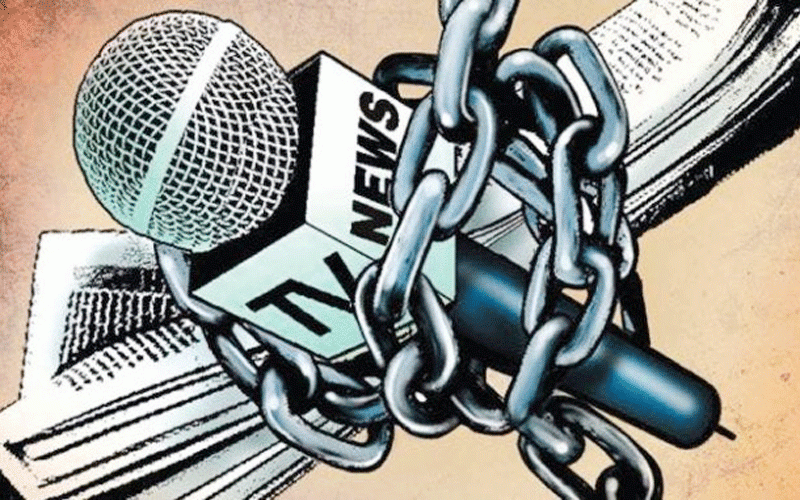
In constructing my utmost argument of this submission - that of asserting the parallel line between podcasting and journalism, I am persuaded to refer to the ancient idiom, “all that glitters is not gold”.
To explore what is now commonly deemed a complex demarcation between traditional and the so called new forms of journalism such as podcasting, let me start by providing a bit of context.
There has been a trending social media debate on how one of the leading podcasters in Zimbabwe handled an interview with an alleged victim of non-consensual sex, which not only triggered conversations online but caught the attention of legacy media.
Without getting into details of the interview and the abrupt response of one of the local tabloids on the same, the raging exchange on this issue warrant critical analysis on how both podcasting and journalism can professional be organised.
Of particular interest, is how traditional media personalities are increasingly crossing the line from being associated with journalism to becoming bloggers, influencers or podcasters among other trades whose difference with the news business is that of day and night.
The aforementioned podcaster that interviewed an alleged rape victim and has all intents and purpose has veered off what would be journalism - has a background in the mainstream and officially regulated media.
To that extent, he is viewed as credible and whatever he produces passed for journalism.
Audiences have naturally shifted their media consumption patterns and with that their belief systems and any semblance of historical credibility brings forth followership online.
- Malawi chiefs shut down Chinese owned mines
- Malawi chiefs shut down Chinese owned mines
- Byo hosts annual media summit
- Feature: Pigeon rearing changes man’s life
Keep Reading
It is a global trend that even journalists in newsrooms are now competing to become bigger than their news stables and to break news before the gatekeeping, quality assurance and standardisation process.
This trend has however brought about challenges, not least what has broadly been defined as information disorders — disinformation and misinformation but has brought about ethical challenges.
In the case of the podcast interview of a victim of rape, which I refer to merely as a contemporary topical issue and a classical example — some of the ethical dilemmas are glaring.
From the question of how to handle a case under judicial review, to handling allegations (of rape) without a right to reply and to question intricate sexual abuse details online and X-rated information without precaution, all of which were carelessly handled in the podcast in question, there is little protection for audiences on social media.
Yet the idea is never to agitate for statutory intervention. Social media is a free market place of information and ideas, with the citizenry being discerning enough to choose between quality and junk news.
The reality though is somewhat a different story in how citizens prefer the sensational over the rationale and the controversial over the convectional.
Worse still if the hyper driven news and information is being parroted by those that are associated with credible news and information.
And the same characters often seek the same privileges of journalism and hide the banner thereof when their credibility is at stake.
Yet what they practice is not journalism and is not subjected to any form of verification and standardisation.
The debate of social media regulation has emerged in policy dialogues. I am, however, not convinced that is the way to go.
In any event, Zimbabwe as a country is overly regulated in many spheres, much to the restrictions of some constitutionally guaranteed rights.
I am, however, in the same vein cognisant of some of the ethical dilemmas that online content creators are posing to the information ecosystem and the disruptions that legacy media personalities and journalists are causing online.
It would be fair for podcasters operating outside the realms of journalism to identify themselves and in the same way that professional journalists should be identified accordingly.
This is the challenge that the Media Practitioners law should be addressing, in the context of ring fencing journalism.
The distinction between professional journalism and those in free market place of ideas, including social podcasting should be made clearer.
Painting the media and journalism with those that masquerade to be in the professional space, only for them to enjoy journalistic privileges, is an area requiring strategic interventions.
Media laws and ethics should be held sacrosanct and those that flaunt them should be identified in the context of preserving the information ecosystem.
Even then, there should be none statutory guidelines to support the work of online content creators outside journalism, lest the online space becomes a jungle.
But more importantly, conversations for the Media Practitioners Bill should be reignited and escalated to ring fence journalism.
There is a lot of glitter, information that is packaged as news and journalism, yet it is not gold.
Real journalism must be preserved to ensure audiences consume standardised, quality news and information.
- Nigel Nyamutumbu is a media development practitioner serving as the coordinator of a network of journalistic professional associations and media support organisations the Media Alliance of Zimbabwe. He can be contacted on njnya2@gmail.com or +263 772 501 557









